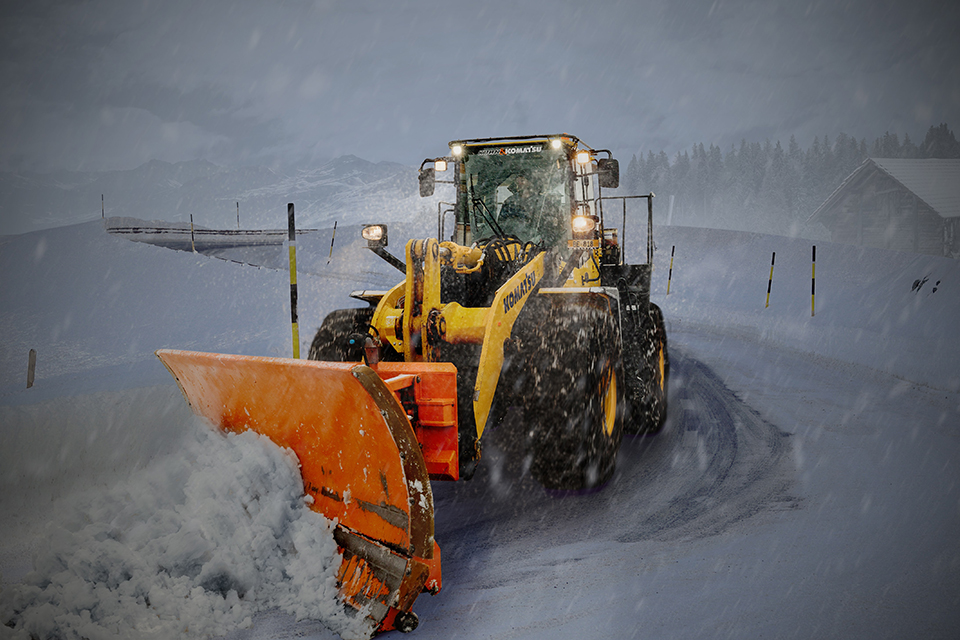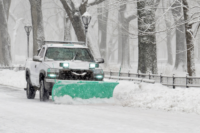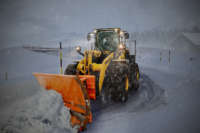For landscaping, property management, and lawn care companies as well as independent contractors, as autumn fades and winter looms, thoughts turn to ramping up their snow removal operations. But there’s a catch: winter is unpredictable. There’s no surefire way to know if the cold weather will consistently deliver heavy snowfalls.
According to the Farmers’ Almanac, the Canadian winter in 2021-22 will be a “yo-yo type of winter with notable polar coaster swings in temperature”. A normal amount of snow in each province is expected, although there will be significant monthly fluctuations across the country. We’ll see our share of major snowstorms and it’s going to get downright frigid at times – no big surprises there.
For snow removal companies, now’s the time to plan and be ready for whatever comes our way from November to May.

What to Do If You’re Starting a Snow Removal Business
The snow and ice removal business can be a lucrative one, but you need to strategize in advance to capitalize on the opportunity, minimize downtime, and be prepared for a cash flow crunch. After all, this is a seasonal business, and a competitive one. The private snow removal industry in Canada is estimated to be worth $4.7 billion, with an estimated 40,000 snow removal contractors.
Consider the following as you build your snow removal business plan and plow away your competitors:
- Know your target market. What type of customers will your business aspire to serve? Whether you intend to target residential properties, commercial, or government and large business properties, knowing who your potential customers are and their needs is essential to your company’s survival.
- Have adequate insurance coverage. As with any commercial operation, you need to protect your business from the threat of third-party bodily injury or property damage lawsuits resulting from an accident, error you make, or when dealing with an unforeseen event that damages your equipment or property. One slip-and-fall lawsuit can bankrupt a business. A customized, comprehensive snow removal insurance policy is a must-have.
- Prepare a budget. You’re not in the snow removal business as an act of charity. You’re in it to be profitable. Your financial plans need to account for a wide range of requirements, taxation responsibilities, and unexpected expenses that crop up. It’s critical to avoid exhausting your budget by overspending before you turn a profit.
- Use the right equipment. Different snow removal jobs or contracts may mean having different kinds of equipment in your toolkit. You need to know the type of work you’ll be doing to determine what equipment you need. Having the right equipment can save time and money.
- Plan for breakdowns. Maintenance and repairs to your snow removal equipment will be required occasionally. Work that into your business calculations so as to avoid failing to deliver on your services to a customer and have a plan to manage your contracts when breakdowns happen.
- Digitize your operations. Nowadays, almost everything is digital or online. For example, your customers will expect to receive an invoice by email instead of a printed document mailed to them. Furthermore, it’s wise to track the location of your vehicles and equipment. That way, you’ll have insight into where your team and vehicles are and keep tabs on when routine maintenance should be conducted.
- Create and market your brand. Getting potential customers to visit your website or call you means branding and marketing your business. From your logo to business correspondence to your website and the social media networks you use, think about how you want your ideal customers to perceive you.
- Forge partnerships. Network with other companies and grow your business relationships. Tap into resources and partnership opportunities to help your small business thrive. One way to do that is to join an association such as Landscape Ontario.
7 Tips for Running a Safe Snow Removal Business
As with any job or worksite, it’s vital to put safety first and avoid preventable injuries or losses. Here are seven useful tips for snow removal operators to keep in mind:
- Know what the hazards are. Take the time to identify, assess, and minimize any potential risks or hazards on any property you’re maintaining before plowing. Also, work to ensure you minimize the risk of slips and falls – they consistently rank among the top causes of injuries to people throughout the winter and can lead to a third-party liability lawsuit against you.
- Keep your equipment in tip-top shape. Ensure you keep your snow removal equipment in good shape. If maintenance is required, get to it, don’t put it off. Before starting any work, do a safety check of your vehicle and be certain everything is in working condition.
- Dress accordingly. We all know winter means bone-chilling temperatures or slushy, icy conditions, but don’t underestimate dressing in layers from head to toe to keep warm and dry. That includes wearing quality footwear and high-visibility safety clothing so you can be seen clearly by oncoming traffic.
- Train your employees. If you run a snow removal business and have employees, it’s essential you train them and ensure they are knowledgeable of all health and safety requirements, plowing techniques, and how to operate the vehicles and equipment they will be using.
- Pile snow in safe locations. Be aware of where you’re piling the snow you remove from a customer’s property or when plowing a street. Snow piles can create visual hazards, and when they start to melt, may flood properties, turn into black ice, or generate run-off and drainage problems in nearby waterways or on roads.
- Be mindful of fatigue. Driving or operating snow removal equipment while tired is a dangerous mix, especially when working overnight or before dawn. If you’re tired, get adequate rest before working.
- Obey the rules of the road. If you’re licensed and contracted to clear a public street or highway, always obey the rules of the road and be aware of other vehicles around you.
Related Posts
Product Liability Insurance: Why Retailers and Online Sellers Can’t Afford to Go Without It
For retailers, online sellers, e-commerce companies and other enterprises, product liability claims and lawsuits could spell the end of their businesses. Here’s how product liability insurance can protect your finances.
Malpractice Insurance for Mental Health Professionals: What You Need to Know
Mental health and wellness practitioners who strive to help people overcome their challenges and live healthier lives face many significant pitfalls that could upend their careers and reputations. Here’s how these professionals can protect themselves.
10 Questions to Ask Before Renewing Your Small Business Insurance
Reviewing your insurance coverage at least annually is recommended before renewing a policy. It’s also worthwhile to ask an insurance broker a few questions to ensure you’ve got the protection your company needs. Here are 10 questions to ask.
Sign Up for ZenMail
"*" indicates required fields








